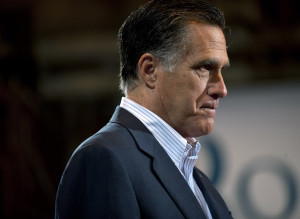 |
| Romney's crew? Not on your life. These are commoners. |
I resent Mitt Romney for the poverty of his ideas. Even more, I resent him for the poverty of his values.
Not that Mitt Romney has no ideas. Far from it, he's full of them. It's just that the ramifications of the policies he espouses and the values they imply have at their core a bare skeleton of compassion and empathy, and the slimmest notion of what human communities need in order to thrive.
As usual, this take on what makes Mitt tick is inspired by a few things I read this morning in my usual hunt for what's up. I found this op-ed in the New York Times by James Atlas entitled "
Don't Show Me the Money," a very compelling read. Though it talked about money and our society's current seeming obsession with it, the most compelling takeaway was a quote by a Harvard government professor:
“The most fateful change that unfolded during the past three decades was
not an increase in greed,” [Harvard professor] Mr. Sandel observes. “It was the expansion
of markets, and of market values, into spheres of life where they don’t
belong.”
Exactly so. This is a defining, perhaps
the defining judgment of our age. And it's an observation that works very well as a means of analyzing what makes Mitt tick and whether his notions have any value for the wider society.
Tax policy -- and the obvious implication that shrinking revenues lead to limiting government's ability to preserve public services or help people in need -- is closely aligned to favoring markets and market makers over consumers. To explore this controversial area, read David Leonhardt's
sober analysis in the New York Times. If tax cuts do stifle economic growth, Mitt Romney's core convictions on the economy ring hollow indeed.
 |
| Values voter? |
Yes, decent people in civilized societies can and do hold wildly opposing positions on key structures of our culture and government, but none are more emblematic of a person's soul than what they are prepared to spend money on and, what's even more crucial, what they're willing to take out of the realm of money altogether.
To clarify, what I mean by taking a practice out of the realm of money is that certain areas of human endeavor constitute a human right regardless of cost. In such cases societies then ban together to afford such endeavors based on membership in the society, not status in such. Endeavors I find critical to examine are healthcare, education, and other services such as public safety and justice.
Using Professor Sandel's mirror, then, how do we judge Mitt Romney, his ideas and his values?
Healthcare:
Mitt Romney, as well as his running mate Paul Ryan, favors so-called market-based solutions to the healthcare needs of our society. Romney clings to this notion that markets are not only perfect -- in the academic sense -- but also tailor-made to manage the production and distribution of medical services. This he believes in spite of overwhelming evidence to the contrary. All the advanced nations of the world, and a number of developing ones as well, have single-payer, government-operated, and/or highly, highly regulated insurance systems that deliver the needed healthcare services to their citizens at
often less than half the cost of American care, often at
much better success rates.
 |
| This is market-based healthcare? |
Mitt Romney's market-based healthcare ideas, especially his notions of voucherizing Medicare and having government support rise at the rate of inflation as opposed to the real and historically higher rates that healthcare costs tend to rise, are fantastical at best and fraudulent at worst, and still he persists with them.
His views on healthcare are made all the more preposterous because he once championed a healthcare system that was less market-based but now insists that his Massachusetts system can't work for America. More likely, he now feels it's too dangerous politically for him to support it any longer.
Now, on healthcare, Romney is left with the barest skeleton of useful or humane ideas or values. His system ends up meaning this: You have enough money to pay the market for healthcare or you suffer and die. What other assumption can one make?
Judgment? Mitt Romney fails the human decency test on healthcare.
If you don't trust my analysis of Romney's position read
Joe Klein's take in the latest Time Magazine.
Education:
Mitt Romney favors
voucherizing education and banning or severely curtailing the rights of
teachers' unions. Essentially he maintains that the privatization of education is good for it. This is a very disingenuous position, of course, as offering vouchers to parents to help them remove their children from the public system is actually underwriting government support of private education. For one who stresses private markets as the solution to our societal needs -- and stressing that governmental intervention is bad -- Mitt Romney is sure ready to spend public dollars on private enterprise. Just how is that consistent?
Strict constructionists, as Mitt Romney claims to be, often conflate the values expressed in the Declaration of Independence with the rule of law actually laid out in the U.S. Constitution. Thus a person like Mitt Romney would support
the right to pursue an education, not the right to get an education. I've never heard him issue exactly that statement, but everything I've heard him say lays the foundation for such an assumption.
 |
| It's constitutional to fund religious education? |
Voucherizing public education and siphoning off public money for private purposes damages the ability of public education to do its job, and that's to provide every citizen the best education society can offer. By the same token, denying teachers the right to bargain collectively limits the ability of the profession to attract well-qualified teachers. Simply put, if teachers can't achieve acceptable levels of compensation, fewer citizens will be willing to teach. And that's a market-based decision if I ever saw one. Bargaining collectively to set compensation levels is a market-based practice. Why would Mitt Romney object to that? It doesn't pass the logic test.
It's well established that other nations where teachers earn less than their American counterparts nonetheless don't offer professions that pay more for the same amount of education required of teachers. In this country, though, teachers -- like myself, for example -- can take their six years of college and go to another profession and make 10, 20, even 50 percent more. How does America then attract highly qualified, highly educated people to remain in the education workforce? The answer is that is doesn't. Most teachers leave the profession in less than five years. It's very destabilizing and self-defeating.
I don't begrudge those who have the desire and the means to have their children educated privately. Do it to your heart's content, but don't expect me to pay for it. My taxes are meant for public goods, right?
In his heart, by his own policy positions, Mitt Romney doesn't support a vibrant public educational system. He neither supports public education nor the public servants who would provide it. Romney's stance on public education is a muddle, one that doesn't guarantee education as a human right. In this he promotes a society of classes, where some deserve what others can't afford. And this applies to both secondary and college education.
Judgment? Mitt Romney doesn't wish to guarantee American citizens educational opportunities and therefore would undermine the public good and, by extension, the private sector dependent on a well-educated workforce. He also would undermine the constitutional right of the teaching profession to bargain collectively, thus weakening the education profession. The opportunities of students and of teachers, by the way, do go hand in hand.
If you doubt my judgment, read
this article in the Kansas City Star, hardly a liberal rag.
Public safety and public health:
Here's one area in which one would assume Mitt Romney wouldn't want to get by on the cheap. Yet how can one imagine, with Romney's fiscal policy positions, that the U.S. could afford the kind of public services necessary to provide what we've historically had?
 |
| A federal response without funding? |
Romney not only is against rolling back any part of the Bush tax cuts but also has proposed yet another round of tax cuts, further trimming federal taxes by 20 percent. His obscure "we'll end loopholes so that these tax cuts are paid for but what these loopholes are, I'll never tell" is not a plan that affords very much in discretionary spending. Under a Romney administration, there's no credible way to pay for what we've got now, meaning public safety and public health spending will decline. Would food inspection and drug testing be maintained under a Romney/Ryan budget?
Analysts question how they can afford it.
Judgment? Mitt Romney's approach to fiscal matters can't help but undermine public safety services, and we can't expect the federal government to help underwrite the cost of state and local services. We'll be a nation in decline in the public services area, and nothing Mitt Romney has offered seems to deny this eventuality.
If you doubt my judgment, read
this editorial in the Washington Post.
Justice:
Mitt Romney supports tort reform, which is code for weakening citizens' access to relief from corrupt or dangerous medical, business and manufacturing practices. He also supports the nomination of Supreme Court justice candidates who would limit awards to victims of corporate malfeasance. When citizens cannot rely of our justice system to provide due process or the ability to petition the government for the address of grievances, which courts have throughout our history provided, then citizens are increasingly at the mercy of market-based abuses.
Judgment? Mitt Romney is not on the side of the individual citizen but on the side of the corporations that tend to control the markets.
If you doubt my judgment, read
this article, which quotes Romney as saying:
"Another burden on our economic future is our out-of-control tort
system. Last year, U.S. healthcare corporations spent more money on tort
claims than they did on R&D. If innovation is the key to our
long-term leadership, then some tort lawyers are cashing out our
country's future. I spoke with one member of the plaintiff's bar the
other day. He said that the tort lawyers are ok with state reform, but
not national reform. You know what state level tort reform means - it
means that as long as there is one lawsuit-friendly state, they can sue
almost any major, deep-pocketed company in America. No thanks, America
needs national tort reform."
As for judicial nominees, read this excerpt from an interview (or the
whole thing to understand just how anti-gun control Romney is):
Romney: Chris, I believe the next president could indeed have the opportunity to
shape the Court for decades to come, and that’s a key reason why the
tens of millions of Americans who support the NRA should support my
candidacy. My view of the Constitution is straightforward: Its words
have meaning. The founders adopted a written constitution for a reason.
They intended to limit the powers of government. The job of a judge is
to enforce the Constitution’s restraints on government and, where the
Constitution does not speak, to leave the governance of the nation to
its elected representatives. I believe in the rule of law, and I will
appoint wise, experienced and restrained judges who take seriously their
oath to discharge their duties impartially in accordance with our
Constitution and our laws—not their personal policy preferences.
 |
| Robert Bork, rejected for racist leanings? |
Though the interview is more about gun issues than judicial nominees, Mitt Romney did his best to use the code words that add up to "my judicial picks will not favor a living constitution but rather a fossilized version of what the founding fathers believed in the late 1700s." How that adds up is anyone's guess, but I'd say he means thumbs up for Antonin Scalia and thumbs down for Stephen Breyer. From my point of view it was also very disheartening that Mitt Romney is against any limitation on assault weapons and large-capacity clips and magazines.
I also was able to find this link to a
Media Matters post on Mitt Romney's support for Robert Bork, one of the few rejected nominees to the Supreme Court. His views on Robert Bork are very telling. Does this support add up to more
racist and misogynist code words?
My analysis of these key issues of public policy do not preclude that today's Republican Party should be held responsible for Mitt Romney's policy positions. On the contrary, the Republican Party
is centrally responsible for Mitt Romney taking these positions. A less strident political party, for instance, might have allowed Romney to tout his healthcare achievements rather than disavow them. So I hold the Republican Party in equal contempt for the poverty of their ideas and values.
You don't have to rely on me here. Rely on conservative columnist
David Brooks.
Republicans and their standard bearers cannot be trusted with America's future. This much is clear and should influence all voters as we move toward November.






































